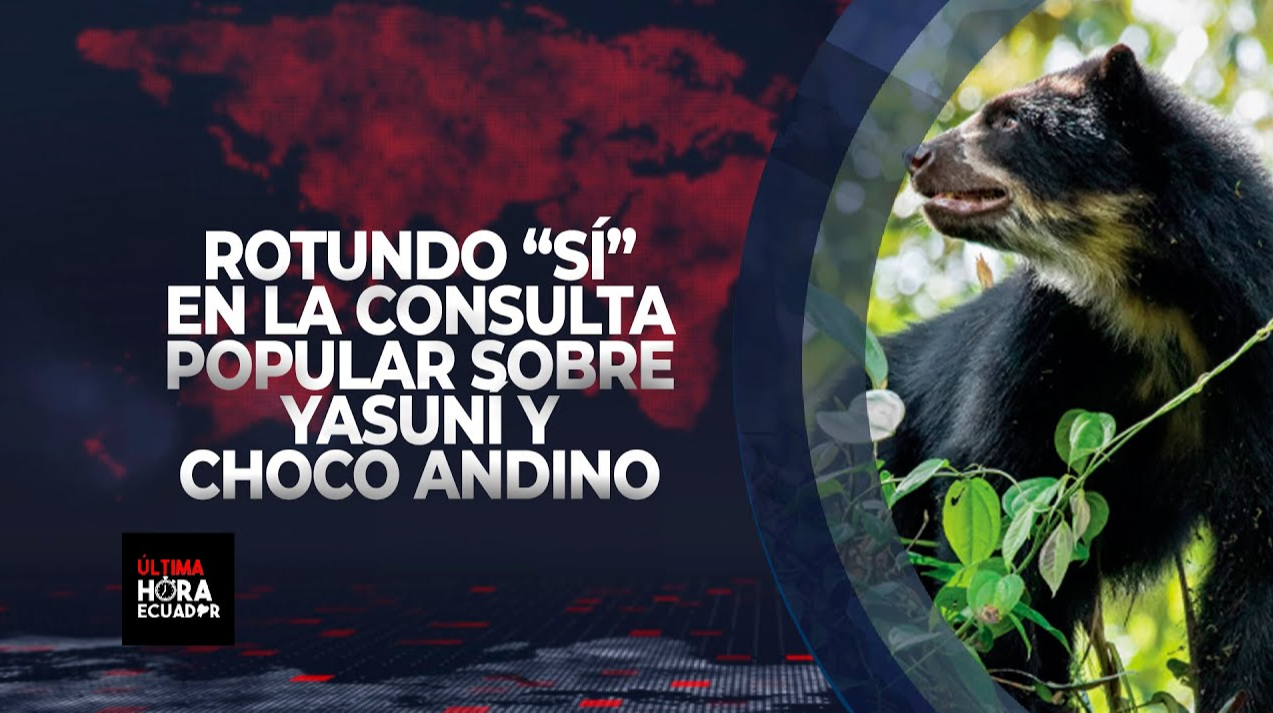
By María Josefina Arce
Ecuador was not only in the news in the last few days for the early elections held last Sunday, but also for the historic triumph of the YES vote in the two popular consultations also held on that day. Ecuadorians voted in favor of the protection of the Yasuní National Park and the Andean Chocó, two areas with a rich animal and plant life.
Society expressed its rejection of oil extraction in Yasuní, declared a Biosphere Reserve in 1989 by UNESCO, the United Nations Educational, Scientific and Cultural Organization.
Oil activity in this area of the Amazon endangers the habitat of around 600 bird species and more than 2,000 identified plant species, as well as the survival of indigenous peoples who remain in voluntary isolation or uncontacted.
However, the neoliberal government of President Guillermo Lasso had intensified oil extraction in that region in order, as denounced by various sectors of society, to satisfy the demands of the criticized IMF, the International Monetary Fund.
The authorities argued that paralyzing the extraction of crude oil would lead to a loss of income for the state, which would then have to reduce expenditures in sensitive and important social areas or reduce subsidies.
The reality is that these profits have not been reversed in favor of Ecuadorians, not even for those who live in the region and see their survival threatened. According to the 2022 National Employment Survey, the Amazonian provinces and those with oil activity are the poorest in the Andean country.
It has been a long road to reach the national consultation. After 10 years of legal battle, the Constitutional Court finally admitted the request for a referendum, promoted by indigenous communities and environmental defenders.
CONAIE, Confederation of Indigenous Nationalities of Ecuador, asserted that the oil companies act like true mafias in our lands, breaking into our lands without consultation and with violence.
From the result of the referendum, there will be a gradual and orderly withdrawal of all activities related to oil exploitation in the area, within a maximum period of one year.
In the other local consultation, only for the inhabitants of Quito, the YES vote to stop mining activity in another area of great biodiversity, the Chocó Andino, located to the northwest of the capital, also won by a wide margin.
A nature reserve, the Chocó Andino also stands out for its great biodiversity, with the presence of 270 species of mammals, 210 species of reptiles and 227 species of orchids. There are 320 archaeological sites of the Inca, Yumbo and Kitukara peoples.
But it is home to a dozen gold, silver and copper mining concessions, while six projects were awaiting approval.
Now no new concessions will be granted, but those already granted will be maintained because they were acquired under a previous regime.
The results of the two consultations are a clear expression of the interest of a large part of Ecuadorians in preserving their environment, which mitigates the effects of global warming and is also a source of livelihood for many families due to its interest in tourism.

